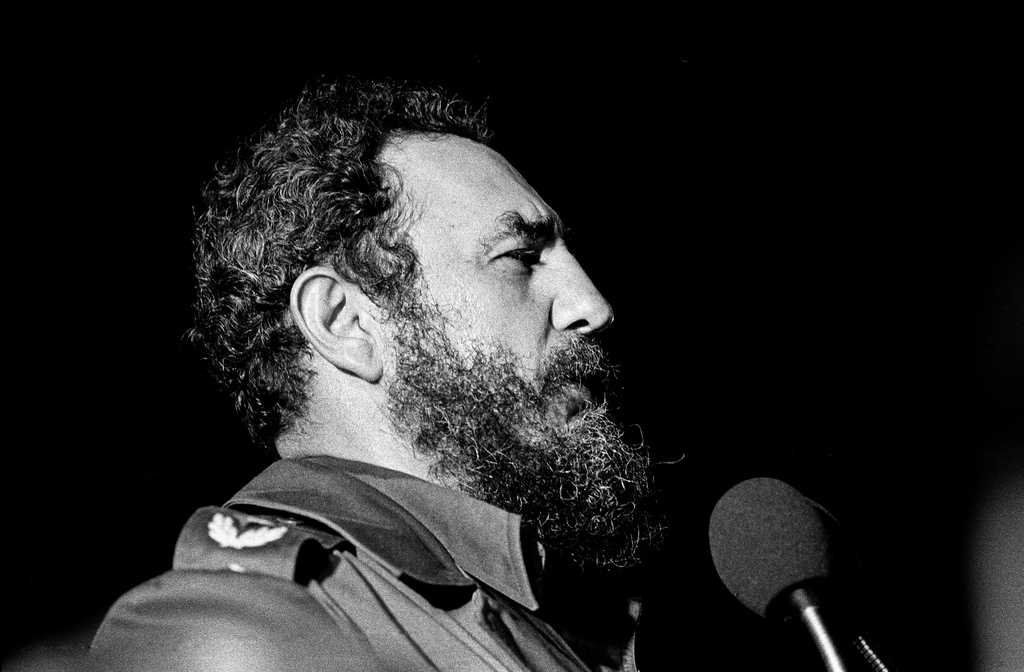Far too often, we canonize prominent figures after their deaths, disregarding the things they did wrong to praise the things they did right. In the case of Fidel Castro, the former Cuban leader who died at age 90 last week, the former outweighs the latter. Although he constructed a sterling health care system and revolutionized education, Castro’s legacy ultimately revolves around his human rights violations: Over his 47-year reign, he implemented a harsh system of repression that surveilled, harassed, imprisoned and, in some cases, killed dissidents.
Thankfully, many observers haven’t glossed over Castro’s misdeeds. The Washington Post’s obituary deemed him “among the world’s most repressive leaders.” The New York Times noted he “wielded power like a tyrant.” And CNN identified him as a “Cuban despot” who went back on his “promise of democracy and an end to repression.” While each of these articles covers his fruitful domestic policies as well, they don’t cover up his heinously autocratic actions toward his own people.
But the sort of nuanced treatment Castro has received doesn’t extend to all cruel rulers. A consistent trend has emerged among American media outlets: Human rights abuses are tolerable when our allies commit them. Because Castro stood firmly against the U.S. and our interests, journalists feel no need to hold back when discussing his human rights abuses. Had he taken a friendlier tone, they may have whitewashed his record and upheld him as a paragon.
Let’s go back in time to the January 2015 death of Abdullah bin Abdulaziz Al-Saud, the then-King of Saudi Arabia. During his 10 years on the throne, Abdullah persecuted religious minorities, cracked down on free speech and tortured and beheaded alleged criminals. His regime also deployed troops to Bahrain to beat back pro-democracy protests, unwaveringly stood behind the brutal Egyptian President Hosni Mubarak and pushed the U.S. to preemptively attack Iran.
Yet when Abdullah passed away, these facets of his tenure went under the radar. The Post emphasized his moderation and called him “a progressive and generally benign monarch.” The Times hailed him as a “force of moderation,” largely skirting his history on human rights and anti-democracy efforts. CNN commended his efforts to “reform” Saudi Arabia and blamed the nation’s atrocities on “resistance from conservative factions.” The justified opprobrium that followed Castro’s demise scarcely came up in these obituaries.
Democratically elected leaders can get this treatment as well. Shimon Peres, who died at age 93 in September, served as the Israeli prime minister and in numerous other positions. In those roles, he pushed for the expansion of illegal settlements in the West Bank, which today are responsible for gross violations of Palestinian rights. He helped the apartheid-era South African government acquire weapons and even offered it nuclear warheads. He oversaw a horrific massacre at the Lebanese village Qana, where the Israeli Defense Forces killed more than 100 civilians.
As with Abdullah, however, these matters vanished once Peres expired. Of the obituaries in The Post, The Times and CNN, none reference South Africa, and the former two bring up Qana only in passing. The settlements, meanwhile, earn one curt mention in The Post and no attention from The Times or CNN. All three outlets underline Peres’ peacemaking credentials — winning the Nobel Peace Prize obviously aided his cause in this regard — yet, they give short shrift to the widespread suffering for which he was responsible.
Like Castro, Abdullah and Peres certainly had their proud achievements; if you’d like to learn more about those, check out any of the aforementioned fawning obituaries. But these two leaders, whose human rights violations matched those of Castro, didn’t receive the balanced posthumous coverage he did. The lesson here is clear: If you want to violate human rights and get away with it, make sure you stay on our good side.
Ryan Romano is a sophomore journalism major. He can be reached at tripler26@gmail.com.



